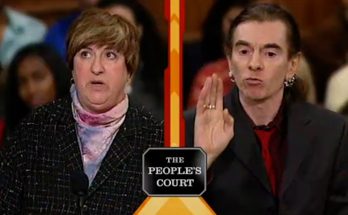In a legal dispute that highlighted the tensions between parents and government assistance programs, a judge ruled in favor of Millisent Burke Calund, the owner of Loving Care Group Family Daycare, in a case against Zakia Johnson, a parent who had failed to pay her childcare fees for the month of May.
The case revolved around whether the state’s child care assistance program should cover the $600 fee, or if Johnson, as the parent, was still responsible for the cost despite the government’s withdrawal of support.
The case began with Zakia Johnson’s daughter, Nahima, attending Loving Care Group Family Daycare, where the daycare provided services at a rate of $160 per week. Of this fee, $145 was covered by the state’s child care assistance program, ACS (Administration for Children’s Services), leaving Johnson responsible for the remaining $15 per week.
This arrangement was typical for many parents who receive government aid for childcare costs. However, a twist occurred in April when ACS notified Calund’s daycare that it would stop making payments after May 10th due to Johnson failing to meet the program’s requirement of working at least 20 hours per week.
Despite this notice, Johnson argued that she had contacted ACS and was reassured that payments would continue while she awaited a hearing to contest the issue. She claimed to have received paperwork that showed ACS would cover the fees during this period.
However, when the month of May passed, the daycare had not received any payment for the month, and Johnson’s daughter was not marked in the daycare’s attendance records.
When Johnson failed to make payments for the month of May, the daycare took action, requesting that she pick up her daughter on June 5th. Johnson, however, insisted that the failure to pay was not her fault, but rather a misunderstanding with ACS. She argued that ACS had “redirected” the payments to the daycare and suggested that the government assistance should cover the fee entirely, including the remaining balance for the month.
In her defense, Johnson requested that Calund’s daycare provide the receipts and attendance records as proof of service. She argued that this would allow her to show the necessary documentation to ACS so that the state could reimburse the daycare directly. However, Calund refused to provide the documents until she received the outstanding payment for May.
Judge Marilyn Milian, presiding over the case, rejected Johnson’s claims and ruled in favor of the daycare. She emphasized that Johnson was ultimately responsible for the payment of the childcare services, not the government.
According to Judge Milian, while ACS had covered the majority of the fees, the remaining balance was Johnson’s responsibility, and the failure of ACS to continue funding was a matter for Johnson to resolve with the government agency.
The judge explained that the child care assistance was a benefit extended to Johnson, not a guarantee. If the government failed to fulfill its end of the bargain, it was up to Johnson to address the issue directly with the agency, rather than placing the burden on the daycare provider.
Judge Milian further pointed out that the daycare had provided the services as agreed, and thus, Calund had every right to be compensated for the care provided to Johnson’s daughter.
The case concluded with Judge Milian ruling in favor of Millisent Burke Calund, the daycare provider, awarding her the full amount of the $600 owed for the month of May. This decision clarified that, despite the complications involving government assistance, the responsibility for payment rested with the parent.
Parents are expected to pay for services, even if a third-party organization like ACS is involved, and any issues with the government’s payment structure are not the fault of service providers.
This ruling serves as a reminder to parents using government-funded services that they are still legally responsible for ensuring that their financial obligations are met. When assistance programs fail to deliver, parents must take the necessary steps to resolve the issue themselves rather than relying on service providers to shoulder the burden.
The decision also reaffirms the rights of service providers, such as daycare centers, to receive payment for their services as agreed upon.
Ultimately, while the dispute highlighted the challenges of navigating public assistance systems, the ruling reinforced the principle that service providers are entitled to payment for their services, regardless of external complications with government programs.


